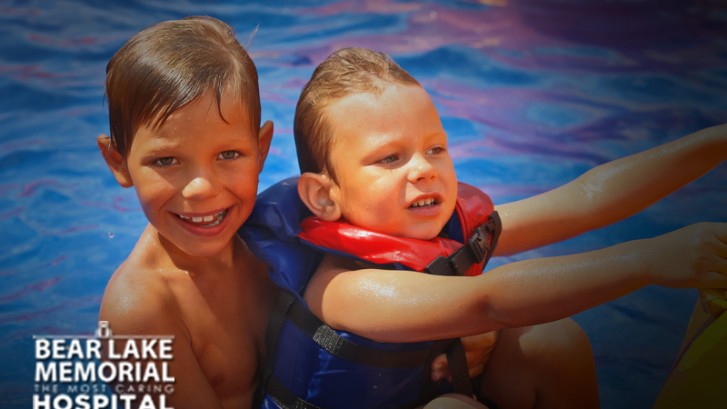Just Keep Swimming . . . Water Safety
Water Safety
In a recent survey conducted by the Red Cross Organization, almost half of the adults surveyed say that they have had an experience where they nearly drowned, and one in four know someone who has drowned. Over 90% of families with young children will be in the water at some pint this summer, and 48% of those plan to swim in a place with no lifeguard. With so many planning to be near or in the water, it is important to follow basic water safety rules and become informed. Here are some common guidelines:
PRACTICE WATER SAFETY
- Always swim with a buddy: do not allow anyone to swim alone.
- Ensure that everyone in the family learns to swim well by enrolling in certified courses.
- Never leave a young child unattended near water and do not leave them with another child. Avoid distractions when supervising young children and always stay within arm’s reach.
- Have young children wear U.S. Coast Guard-approved life jackets. Staying safe around water doesn’t mean having kids wear water wings!
- If you have a pool, secure it with appropriate barriers. Many children who drown in home pools were out of sight for less than five minutes.
KNOW HOW TO RESPOND TO AN AQUATIC EMERGENCY
- If a child is missing, check the water first. Seconds count in preventing death or injury.
- Have appropriate equipment, such as reaching or throwing equipment, a cell phone, and life jacket.
PROTECT YOURSELF FROM THE SUN
- Drink plenty of fluids. Avoid drinks with alcohol or caffeine
- Wear sunscreen with a minimum SPF factor of at least 15. This should be higher for young kids.
BOATING SAFETY
- Be weatherwise! Always check local weather conditions before departure. If you notice dark clouds, rough or changing winds, or a sudden drop in temperature, get off the water! Getting caught in rough waters can quickly become a dangerous situation. Pay attention and use common sense when deciding whether or not to go out.
- If caught in a thunderstorm on open water, stay low in the middle of the vessel. If there is lightning, disconnect all electrical systems and stay clear of all metal objects.
- Always tell someone of your travel plans. Tell them where you will be and give them a timeframe for when you will be back.
- Make sure ALL passengers are wearing U.S. Coast Guard approved life vests. The majority of drowning victims are the result of boaters not wearing their lifejackets.
- Operate at a safe speed at all times and be courteous to other recreationists.
- Make sure more than one person on board is familiar with all aspects of your boat. If the primary handler is injured or incapacitated in any way, it‘s important to make sure someone else can follow the proper boating safety rules to get everyone back to shore.
Using common sense and following a few safety rules can help ensure that your summer is fun and disaster free.

